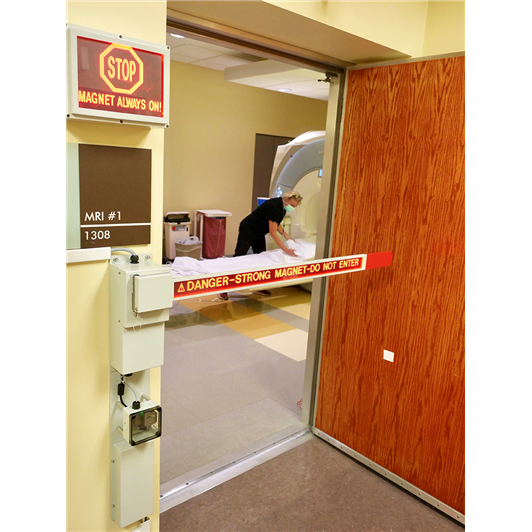Phone: (707) 762-8600
8am - 4pm M-F PST


The gateway to MRI room safety
Every day at hospitals and health care facilities around the world, the safety of patients, technologists and medical personnel is compromised when access to the MRI room is not adequately controlled. The incredible magnetic field generated by the MRI cannot be seen and proper caution barriers are required to prevent inadvertent access to these conditions by unscreened individuals .
When MRI warning signs fail, patients and technologists risk physical harm, while expensive equipment is jeopardized by someone who unknowingly enters an unsecured or open MRI door. There is now a simple and effective way to diminish that risk: TechGate Auto. TechGate Auto allows technologists to focus on the care of patients and efficient room turnaround rather than worrying about a potential intrusion. Easy to use and designed for the MRI environment, TechGate is deployed via remote control, providing an immediate physical restriction of access to all unauthorized individuals. Both shipping and installation are included..*
Key Features
Who Needs TechGate
Many MRI environments are currently at risk for an adverse event. They include:
*Photos of the MRI room door or patient screening area where installation is to occur, as well as a facilities contact are both required prior to installation.